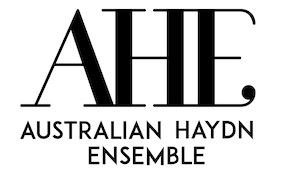A program of warhorses that comes off thanks to a thoroughly thoroughbred performance.
Conservatorium Theatre
Southbank, Brisbane
March 9, 2014
Not for the faint-hearted, Jayson Gillham set himself a formidable challenge when he chose such evergreens and war horses by Beethoven, Scriabin, Chopin and Liszt for his debut recital with the Medici Concerts, International Piano Masterworks Series last Sunday. It was a program ironically that could well have been chosen by Piers Lane another Queenslander and London-based pianist featured in the series.
Brisbane audiences have followed the career of 27-year-old Gillham with great interest ever since the fresh-faced country boy from Dalby surprised Queensland’s classical music scene with his fierce and precocious talent some ten years ago. In 2013 he performed Beethoven’s Emperor Concerto with the Queensland Symphony Orchestra, a concerto he presented as finalist in the UK’s Leeds Piano Competition.
Medici Concerts has featured a line-up of the world’s finest wizards of the keys including Paul Lewis, Freddy Kempf, Stephen Hough, Pascal Rogé and Barry Douglas. And the audience of predominantly piano cognoscenti, students, teachers, professors and classical music buffs is a demanding, discerning crowd. At interval, there’s a caffeine-fuelled buzz in the crowded foyer as the strengths and frailties of the soloist are debated over coffee.
Gillham’s task was daunting. He had to persuade the filled-to-capacity audience to forget about the promising, homegrown youngster they had previously cheered and instead respond to the fully-fledged, polished professional he has evidently become. Yet Gillham looked grounded and poised as he sat at the keys about to launch Beethoven’s Sonata in A Major, Op 101 that the composer once joked was his difficult-to-play-sonata because of its dense textures crammed with convoluted, contrapuntal writing.
The sonata’s structure is said to be like a Bach Prelude & Fugue except that a compulsive, dotted march, that sounds remarkably Schumanesque, interrupts the outer movements. Gilham’s beautifully crafted introduction revealed gorgeous tone and the clarity in articulation, brilliant fingerwork and searching quest of the first movement was particularly convincing. But it was Gilham’s scorching, richly-imagined rendering of Chopin’s Twelve Etudes, Op 10 that disclosed a brave unfettered soul always driving to the heartbeat of every moment that so deeply enthralled his listeners.
Chopin transformed the Etude by giving each of his virtuosic studies aesthetic meaning and purpose. Yet it is rare to hear these played with such astonishing bravura and intensity. The treacherous reaches of extreme passagework – that have smashed the dreams of so many keyboard aspirants – became seductive washes of shimmering power in Gillham’s fingers. And the story of each, from the cascading waterfalls of No 1, the nostalgia of No 3, the plaintive voice in No 6 to the appealing lyricism of No 9 and the explosive angst of the Revolutionary was vividly portrayed.
After interval, the program took up the gauntlet of three of Liszt’s theatrically charged transcriptions including the Tristan und Isolde Liebestod, the Rigoletto Paraphrase and Rhapsodie Espagnole. In each of these, Gillham was authoritative, incisive and mercurial but it was the introspective dialect of the eight-minute Scriabin Sonata No 4 in F Sharp that seemed to own his heart. In the ethereal Andante, Gillham drew sumptuous colour and his fingers dazzled in the dancing Prestissimo volando. This was a rewarding and enjoyable recital.
Medici Concerts on the horizon are Lukáš Vondráček, Stephen Hough and Jean-Efflam Bavouzet.












Comments
Log in to join the conversation.